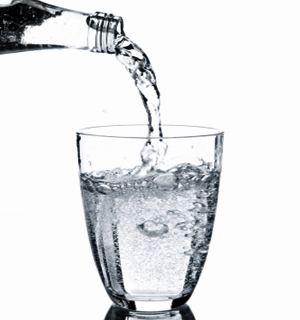I've always struggled with up and down blood sugar levels. One minute I may feel fine, then the next minute I feel as if I may faint if I don't shove something sugary in my mouth right that moment. It comes on fast and hits hard.
Out of control blood sugar is linked to heart disease, diabetes and obesity. It can make one feel light-headed, irritable, listless and starved, just to name a few. Many of us are affected by our blood-sugar levels without even knowing it.
Foods such as white bread, white rice, French fries and sugary sweets cause insulin resistance. Insulin resistance is what occurs when the body’s system for handling blood sugar highs and lows get overworked and worn down. Insulin resistance can lead to heart disease, memory loss and diabetes. While this can cause many problems it is fortunately reversible in certain cases. Eating the right foods can cure it, just as eating the wrong foods caused it. Exercising and getting a good night’s sleep will also help to fight insulin resistance. I am going to share with you some foods that will help keep your blood sugar under control and your energy levels up.
· Apples
- Research shows that women who eat an apple a day are 28% less likely to develop type 2 diabetes than those who don’t eat apples
- Apples are loaded with soluble fiber which is number one for suppressing blood-sugar swings
- Apples are also known to lower cholesterol
- Tip: Spread a small amount of peanut butter (another magic food) on a sliced apple for a delicious snack
- Tip: Replace three quarters of butter or oil called for in cookie, cake, and brownie recipes with unsweetened applesauce
· Barley
- Eating barley instead of white rice cuts the effect on your blood sugar by almost 70%
- Barley helps you to feel full because its insoluble fiber slows the rate that food leaves the stomach
- Helps to lower cholesterol
- Tip: Add barley to casseroles and use it in the place of rice
· Beans
- All beans, canned or dried, can tame insulin and blood sugar levels
- The soluble fiber in beans slow digestion, leading to a slow, steady blood sugar rise rather than a spike
- Beans are one of the top ten foods rich in antioxidants
- Tip: Bean dip or hummus with a whole wheat pita cut into wedges is a nutritious and yummy appetizer
· Broccoli
- Broccoli has very little effect on your blood sugar and is an incredible source of chromium, a mineral required for insulin to function normally
- Broccoli contains a ton of Vitamin C
- Tip: To create a creamy soup without the cream, puree cooked broccoli, cauliflower and onion with salt and pepper. Add low-fat milk for an even creamier texture
· Cheese
- Cheese contains very little carbs and it will still make you feel pretty full
- Cheese is an excellent source of calcium
- Watch out though! Eating too much cheese isn’t good because it contains saturated fat and is generally high in calories. When possible eat lower-fat cheeses like low-fat cottage cheese or skim ricotta
- Tip: Add feta or goat cheese to omelets
· Cinnamon
- Some natural compounds in cinnamon have the ability to mimic insulin helping glucose get into cells where it can be used for energy
- Cinnamon significantly lowers blood sugar
- The natural chemicals in cinnamon can help prevent blood platelets from clumping together and forming clots that can cause heart attacks
- Tip: Add cinnamon to applesauce
- Tip: Add a half a teaspoon or so of cinnamon to ground coffee before starting the pot
· Flaxseed
- Flaxseed is rich in fiber and protein. It’s also a good source of magnesium
- Flaxseed protects against inflammatory conditions such as rheumatoid arthritis, asthma, Chron’s disease, eczema, and psoriasis
- Tip: Add a tablespoon or two to dough’s and batters for pancakes, waffles, muffins, and breads
- Tip: Add to smoothies
· Peanut Butter
- A health study found that women who ate peanut butter at least five times a week were as much as 30% less likely to develop diabetes
- Peanut butter has also been shown to dampen appetite for up to 2 hours longer than a low-fiber, high-carb snack
- Tip: For a snack that wont spike your blood sugar spread peanut butter on whole grain crackers or triangles of toasted whole wheat pita bread
Source: Reader's Digest Magic Foods for Better Blood Sugar













